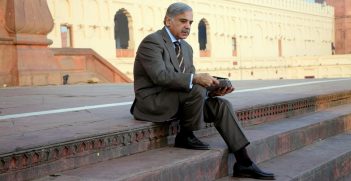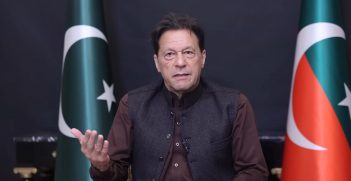State Repression and Human Rights Violations in Pakistan

Imran Khan, the former prime minister of Pakistan, was ousted in April 2022 after an orchestrated no-confidence motion was passed against him. Since then, he and his political party have been subjected to consistent and worsening state repressive attacks.
Imran Khan, the former prime minister and a renowned figure in cricket, philanthropy, education, and political reforms, has become the latest target of Pakistani state repression, along with his political party, Pakistan Tehreek-e-Insaf (PTI). This phenomenon evokes a sense of déjà vu for those familiar with the secession of Bangladesh and the brutalities inflicted by the armed forces in East Pakistan. While not entirely novel, it has caught the attention of younger generations who grew up idolizing the Pakistan Army, only to witness mass arrests, torture, the banning of PTI, and the coercion of party leaders through bribery and harassment. Instances such as threatening individuals with enforced disappearances in Balochistan have caused some leaders to leave politics and PTI for good.
This repression highlights the extent to which the most powerful military institution, masquerading as a Pakistan Democratic Movement (PDM) government, employs coercive power to suppress Khan and his party. PTI workers including women, along with the party’s leadership still refusing to be disassociated from PTI, have been imprisoned without any charges filed against them.
As defined by Christian Davenport, state repression entails the actual or threatened use of physical sanctions against individuals or organisations within the state’s jurisdiction, with the purpose of imposing costs on the targets and deterring activities or beliefs deemed challenging to the government. This definition aptly characterises the situation in Pakistan, where human rights are blatantly violated, and where the homes of PTI leaders and workers have been raided without search warrants or charges. In cases where the men are not found, children and women are abducted. Women were dragged from their houses and abused further broadening the terror of the current government. Reportedly they are sexually abused too. Their release is contingent upon press conferences disassociating themselves from PTI and the shifting of blame onto Khan and the remaining PTI members for the events of 9th May 2023. On the day, the Pakistani constitution, which otherwise exists as a mere document, was brazenly violated and the former prime minister, Imran Khan, was arrested by paramilitary forces within the premises of a court. He was dragged and physically assaulted despite his pre-existing leg injury. It may be noted that his injury was the result of one of the many assassination attempts made on him.
The authorities were anticipating a reaction to Khan’s arrest and therefore a spectacle was staged to create an environment justifying the crushing of PTI and the subsequent arrest of Imran Khan. The damage to Jinnah house—until 9 May it was known as corps commander’s house—provided a strong reason for the crackdown on Imran Khan and PTI. Interestingly, the state authorities declared the day as a 9/11 of Pakistan, totally ignoring other significant incidents such as the burning of Ziarat Residency by Baloch separatists in 2013, the Army Public School attack in 2016 resulting into killing of 170 children by the TTP, and attacks on PNS Mehran naval base in 2011 and on Army General Headquarters in 2009. May be the house is more sacrosanct? Another intriguing question, which no one is ready to respond to yet is the whereabouts of the residents of this sacrosanct house.
The civilian protesters, despite being subjected to expired tear gas shelling on 25 May 2022 and Khan’s attempted assassination in November 2022, which saw no violent reaction from PTI supporters. The same PTI protesters witnessed the raid on Khan’s house without resorting to retaliation. However, under the cover of 9/11 Pakistan, as declared by the security agencies, they are now facing targeted persecution. once charge includes a mysterious chemical attack on a heavily barricaded Commander’s house, against which the entire state apparatus has yet to provide evidence PTI involvement.
These mysterious events indicate that there are clear questions the PDM government is looking to avoid. On the day around 10-15 protestors lost their lives, yet seemingly there was no news coverage or information available about their fate. Oddly, no law enforcement officials were harmed during this incident, despite damage to state property.. Despite the fact that the entire state apparatus is involved in suppressing Khan and his political movement, effectively preventing his return to the political arena in Pakistan, Khan remains resolute in his commitment consistently vowing the he will “continue to fight for the rights of the people of Pakistan.”
Outside of Pakistan, the response has been muted. The British prime minister has deemed the events an internal matter of Pakistan, while the representative from the US State Department has categorised it as a matter concerning a “private citizen.”’ Australian parliamentarians, including David Shoebridge and Mehreen Farooqui, were among the few who initially raised the issue in parliament, bringing global attention to the flagrant human rights violations occurring in Pakistan.
A complete media blackout is in effect, and even the mention of Khan’s name is prohibited. Journalists who dare to criticise the brutal display of force are frequently targeted, abducted in broad daylight, and subjected to enforced disappearances. The renowned journalist Arshad Sharif, for instance, was forced to leave the country after being charged with 16 felonies, including treason. He fled to Dubai initially on a visitor’s visa but was pushed farther afield into Africa in search of safety. Eventually, he sought refuge in Kenya, where he allegedly met his untimely demise at the hands of the Kenyan police. The institutional link behind the killing of Arshad Sharif for all plausible reasons would be nearly impossible to prove. Another journalist, Imran Riaz Khan, was abducted from police premises and has been missing for nearly two months. Several other journalists, including Moeed Pirzada, Ahmed Noorani, and Sabir Shakir, have fled to the UK or the US to protect themselves, fearing they may face a similar fate.
Khan is a figure who has consistently brought triumph and pride to Pakistan. He secured Pakistan’s first and only cricket World Cup victory, authored six books, engaged in charitable work to assist the poor, and ranks among the leading philanthropists. All public surveys still show his popularity graph touching the new heights with his vote bank present in entire Pakistan. It is these very achievements that threatens the powerful military establishment, who challenges them with determination, resilience, courage, and a refusal to yield to their demands.
State repression in the forms of harassment, surveillance, bans, arrests, torture, and mass killings perpetrated by the PDM and with the complete support of military establishment not only poses a human rights concern within Pakistan but also has the potential to become a significant issue for the region and the world. The youth bulge of its population, with 64 percent below the age of 30 years, and a median age of 20.2 years, could be an asset for a country that is geared for progress and development. But with consistent political upheaval, the youth are frustrated and depressed. The sinking of a boat on Greek shores carrying more than 300 innocent Pakistanis who were searching for peaceful employment and a better life, illustrates the extent of the current political repressive trauma.
Dr Seema Khan is a Pakistani origin Australian and a freelance writer.
This article is published under a Creative Commons Licence and may be republished with attribution.





